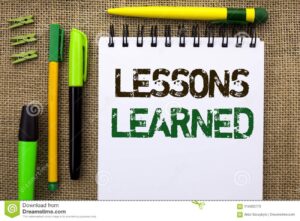 During Women’s History Month I have been reading lots of articles from CEOs and entrepreneurs. I am going to share some of what I learned with you.
During Women’s History Month I have been reading lots of articles from CEOs and entrepreneurs. I am going to share some of what I learned with you.
The first set of lessons is from Sarah Breedlove. Sarah – better known as Madam C.J. Walker was the first woman self-made millionaire in the U.S
Lesson 1: Gain knowledge and experience first. Then make it your own – but better.
Learn the history of the company and the product, why they do what they do, and how they do it. then improve or change it. In 1904, Walker had been selling hair products for Annie Turnbo Malone, an African American hair-care entrepreneur herself. she learned every aspect of the business then started her own.
Lesson 2: Build a team you can trust to make the dream work.
In 1906, Walker married Charles Walker, who eventually became her business partner and helped her market her brand. The dynamic duo would travel all over the Southern and Eastern United States, while Walker’s daughter stayed in Denver, Colorado to help with the mail orders.
Who do you need on your team? What skills and attributes must they have? Just because it’s a relative or good friend does not mean they have what you need on your team. Seek expertise first.
Lesson 3: Wait for signs it’s time to grow your staff and relocate your business.
By 1910, Walker was on her way to success and moved her business to Indianapolis, Indiana, where she settled the headquarters for the Madame C.J. Walker Manufacturing Company. Her headquarters included a house, factory, laboratory, and later a beauty school so she could train her sales agents. With business taking off, Walker was able to hire both management and sales teams.
There is a huge lesson here! Walker created systems and prototypes to make the business sustainable. It did not require her to be there. She had teams and procedures in place. She knew how to delegate and develop others.
Lesson 4: Make your business mission more than just about the product.
After 1911, Walker’s business soared and her brand become more than just a beauty product, but instead an overall movement for empowering other women – particularly, other women entrepreneurs.
When people start businesses they have to have a purpose. It’s more than making money it’s about why you exist and your purpose. Check out Simon Sinek’s start with why Ted talk to better understand the mission
Lesson 5: Know your product and market audience.
Walker’s success is largely due to her ability to recognize a problem, gain the knowledge and experience to solve it, and put together a dream team. But what made her success skyrocket in such a short amount of time were her sales skills. Walker was known for going door-to-door to sell her beauty products and actually showing women how to use it. Her networking built her a community of supporters all over the United States. In addition, when she had the revenue to broadcast her brand even more, she advertised in newspapers and magazines.
This is classic target marketing. Know the benefit of your product to the right audience. It’s not about the nice to have in a product, it’s what your customers need to have; what motivates them to buy from you.
I’m sure Madam CJ Walker worked very hard and I bet she knew how to balance this with time to renew and restore her energy. Heidi Zak, Co-Founder and CEO, ThirdLove describes why productive weekends can mean doing nothing and that they are an important counterbalance to the week
Zak has three components of a productive weekend
- Socializing. A productive weekend always involves at least one social activity. This can be doing a sport with friends, going out for dinner, wine tasting, or whatever gets you talking with other adults about non-work topics. Laughter is important.
- My kids. For her it is kid time, for you it might be taking your dog to the dog park or it could be an activity with spouses or other family members.
- Me. Setting aside time to take care of myself is also essential to happiness. It doesn’t have to be exercise unless that is something you want. It can be massages or mani-pedi or haircuts. It can also be as simple as sitting and reading a good book, not one for work.
If you’re trying to make the most of your weekend, here’s how to think about it:
- Prioritize “me” time. “Me” time, where you do things that are specifically designed to make you happy, When you set time just for yourself it is a non-negotiable time. whatever you choose and you set the amount of time. No one else is going to give you the “me” time, so you have to claim it for yourself.
- Be OK with doing nothing. Imagine taking a nap by the fire or outside in the warm sun. How about just floating in water or taking a long hot bath. It’s what ever you need to do to rejuvenate. Remember no guilt trips allowed
- Set the intention for the week ahead. The same way you set the intention of how you will spend the weekend, it’s important to have a fluid transition between the weekend and the week. Sunday after dinner I take about 30 minutes to look at my calendar for the following week, email my zoom links and make sure I have what I need for the week.
How will you use these lessons and ideas? Please share what your productive weekend looks like.
Recent Comments